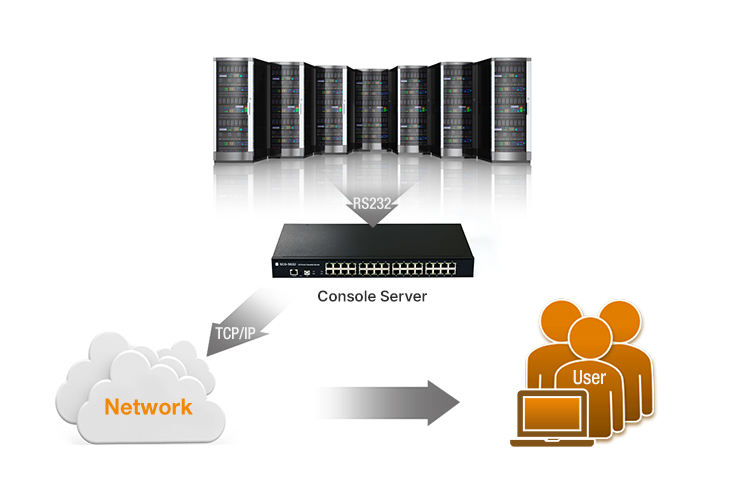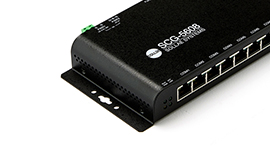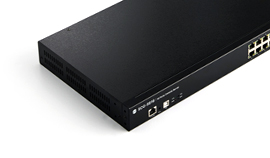
A console server is a device that provides a unified interface to the serial console ports connected to multiple network devices (routers, switches, servers, etc.). This allows users to remotely access the consoles of physically distant devices over a network. In simpler terms, a console server is a tool that aggregates the consoles of multiple devices into a single, easily manageable interface.

· Remote Management Convenience: Save time and reduce costs by remotely managing devices without physically accessing them.
· Centralized Management: Use a console server to consolidate the management of devices across multiple locations from a central hub.
· Enhanced Security: Prevent unauthorized access with robust authentication features and track management activity through detailed logging.
· Improved Fault Response Speed: Quickly identify and resolve issues when faults occur, minimizing service downtime.
· Data Centers: Console servers are used to efficiently manage a large number of servers and network devices.
· Branch Office Management: Improve efficiency and reduce management errors by overseeing the consoles of multiple devices from a single interface.
· IoT Environments: Console servers are used to centrally manage a large number of IoT devices.
· Number of Ports: Determine the required number of ports based on how many devices need to be connected.
· Security Features: Choose a product with strong security features, especially for environments where security is a top priority.
· Ease of Management: Opt for a product with an easy-to-use management interface.
Console servers are an useful tool for enhancing network management efficiency and speeding up fault response times. They are an essential solution, especially in environments where many devices need to be managed.
Many Internet Data Centers (IDCs) are choosing Sollae Systems' console server to ensure stable system operations, maximize efficiency, and reduce maintenance costs.
| Model | Description | Price |
|---|---|---|

|
SCG-5608
8 x RS232 |
US$ 570
|

|
SCG-5616
16 x RS232 |
|

|
SCG-5632
32 x RS232 |